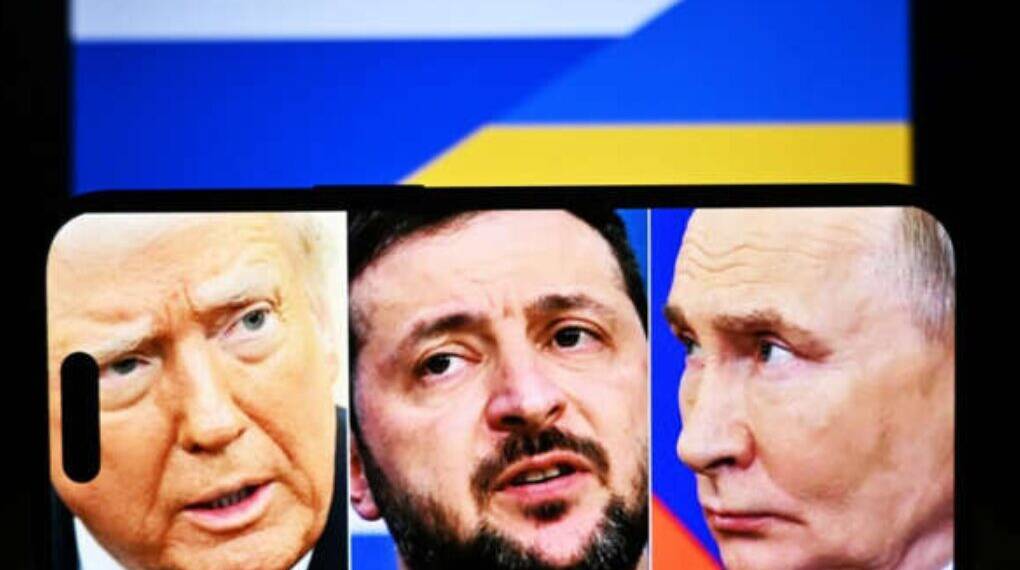As U.S. President Donald Trump intensifies his rhetoric toward Moscow, threatening new sanctions unless Russia agrees to a ceasefire in Ukraine within 10 to 12 days, the Kremlin has responded with both defiance and devastating military escalation.
Just hours after Trump’s deadline was announced, Russia unleashed one of its deadliest assaults of the war—killing over 1,300 Ukrainian troops in a single day and launching a wave of drone and missile strikes across major cities.
This development not only marks a dangerous turning point in the conflict but also raises serious questions about the effectiveness—and consequences—of political ultimatums in global diplomacy.
Trump’s Hardline Warning
While on a visit to Scotland earlier this week, Donald Trump—presumed Republican frontrunner for the 2024 U.S. election—announced a shortened ceasefire deadline for Russia. “I am very disappointed in President Putin,” Trump said. “There’s no reason to wait. I’m giving them 10 to 12 days to come to the table.”
The president, who has oscillated between praising and pressuring the Russian leader in past statements, warned that if Moscow failed to move toward ending the war in Ukraine, the U.S. under his leadership would impose sweeping new tariffs and sanctions.
Kremlin’s Cold Dismissal
The Kremlin swiftly brushed off the ultimatum as routine and ineffective. Spokesman Dmitry Peskov stated that Russia had developed “immunity” to Western sanctions, having operated under them for over a decade. “We’ve been living under a massive number of restrictions,” Peskov told reporters. “Of course, we have already developed a certain immunity.”
Foreign Ministry spokeswoman Maria Zakharova called Washington’s pressure tactics “predictable” and accused the West of being “stuck in a sanctions rut.” Her comments reflect Moscow’s broader strategy: frame the West’s punitive measures as self-defeating and signal that Russia’s Ukraine policy is immovable under outside threats.
Medvedev’s Ominous Warning
Dmitry Medvedev, Deputy Chair of Russia’s Security Council, issued one of the most inflammatory responses. Taking to social media X, he warned Trump not to play the “ultimatum game,” saying Russia was “not Israel or even Iran.” He added: “Each new ultimatum is a threat and a step toward war—not with Ukraine, but with your own country. Don’t go down the Sleepy Joe Road!”
Medvedev’s comments underscore growing hostility from Moscow toward both current and future U.S. leadership and hint at an increasingly dangerous standoff that extends beyond Ukraine’s borders.
Russia Responds With Force
In what appears to be a deliberate and brutal counterstroke to Trump’s ultimatum, Russia launched a massive wave of attacks across Ukraine less than 24 hours after his announcement. According to Ukrainian military sources:
Over 1,300 Ukrainian soldiers were killed in a single day.
300 drones and eight ballistic missiles struck key targets in Kyiv, Dnipro, and Chernihiv.
An Iskander missile obliterated a Ukrainian military training center near Chernihiv.
Civilian infrastructure across several cities suffered extensive damage.
President Volodymyr Zelenskyy described the onslaught as “Russia’s attempt to drown diplomacy in blood.” Ukrainian officials also warned that the Kremlin was “testing the resolve of the West” and urged for more military support. “Peace without strength is impossible,” a Ukrainian defense ministry spokesperson said.
Strategic Messaging or Escalation?
Analysts believe Moscow’s barrage was intended not just to strike Ukraine militarily but to send a direct message to Trump and the West: ultimatums will be met with defiance, not submission.
“This was a signal—not just a tactical assault,” said a European security analyst. “It’s Moscow telling Washington, ‘You don’t dictate our war timeline.’”
The timing and scale of the attacks suggest Russia is betting on showcasing strength rather than vulnerability under pressure. The escalation also increases the burden on Trump’s threat of sanctions—now appearing not only ineffective but potentially provocative.
Sanctions Fatigue in the Kremlin
For years, Russia has adapted to a suite of economic and trade restrictions from the U.S., EU, and other Western nations. From banking bans to oil export limits, sanctions have undeniably strained Moscow’s economy. However, Russian officials claim these measures have forced self-reliance and industrial reform.
Maria Zakharova’s remarks reflect a belief in the Kremlin that the sanctions toolkit has lost its sting. “Apparently, there are no other options left,” she said. “We are responding and even turning it to our own advantage.”
This line of reasoning, repeated in Russian state media, positions the West not as punishing Russia but as repeating failed strategies while damaging their own economies in the process.
Geopolitical Stakes Rise
With both Trump and the Kremlin hardening their positions, the war in Ukraine may be entering an even more dangerous phase. Trump’s threat of new sanctions may galvanize support among his domestic base, but it also risks prompting escalatory actions from Moscow, as seen in this week’s attacks.
Meanwhile, NATO allies remain cautious. While supporting Ukraine remains a collective priority, there are growing fears that rhetoric from figures like Trump could either escalate the conflict or undermine coordinated diplomatic efforts.
Diplomacy at a Breaking Point
Trump’s 10–12-day deadline was intended as a show of resolve. Instead, it appears to have triggered a violent show of force from Moscow. As over 1,000 Ukrainians lie dead and cities reel from fresh destruction, the world is left questioning: can threats alone resolve a war this entrenched—or will they only deepen the bloodshed?
If Russia continues its current posture and the West fails to adapt its strategy, the Ukraine war may become not only more violent, but increasingly immune to traditional tools of diplomacy and deterrence.








